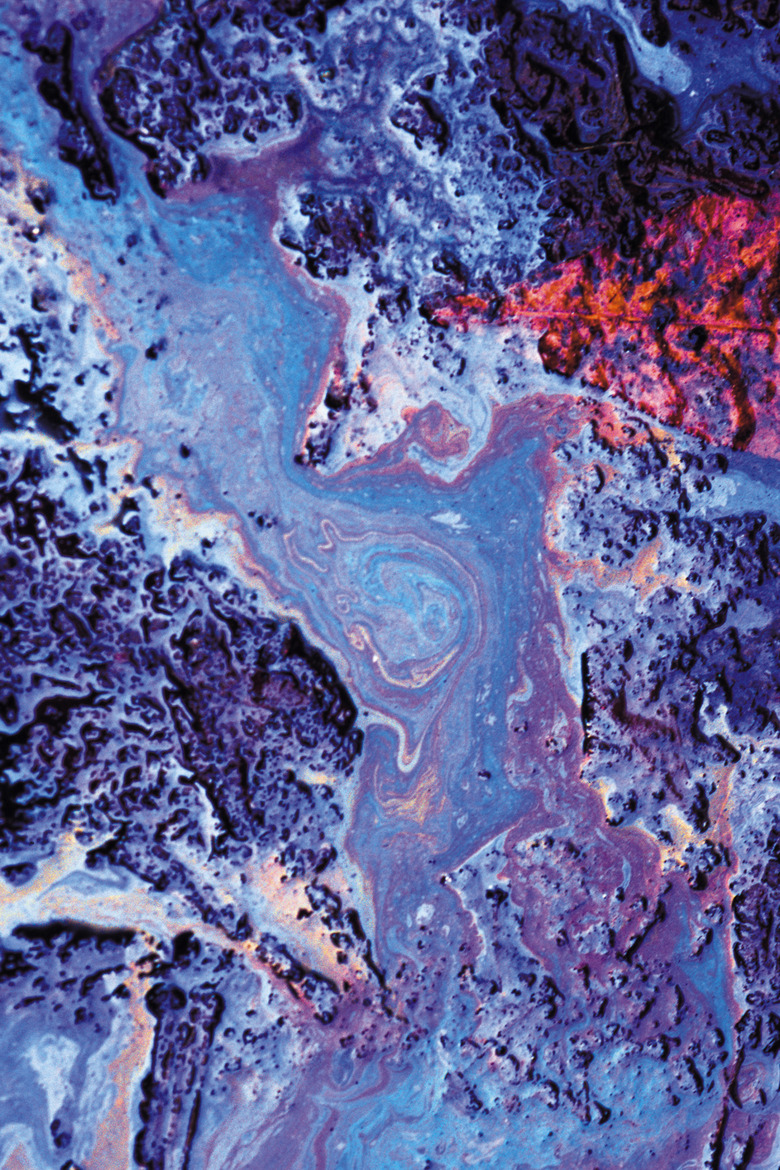Is Grease Dissolving In Soapy Water A Physical Or Chemical Change?
If you have ever tried to clean a greasy pan without soap, you know that fats, oils and other nonpolar substances do not dissolve in water. At best, they congregate into large droplets. Soaps, however, are special molecules with a hydrophilic head and a hydrophobic tail, and they spontaneously organize into tiny spheres with hydrophobic interiors that can dissolve nonpolar compounds. But is the dissolving process physical or chemical in nature?
Physical and Chemical Changes
Physical and Chemical Changes
The key difference between a chemical change and a physical change is that molecular chemical nature is not affected by a physical change. For example, boiling water is a physical change because the water molecules are still water molecules. When a molecule dissolves, it is simply surrounded by the molecules of the solvent — its chemical composition has not changed. Therefore, when grease dissolves in soapy water, it is merely going through a physical change.
References
- "Pharmacy College Admission Test Review"; Kaplan Publishing; 2012
Cite This Article
MLA
Mullis, Robert. "Is Grease Dissolving In Soapy Water A Physical Or Chemical Change?" sciencing.com, https://www.sciencing.com/grease-dissolving-soapy-water-physical-chemical-change-12762/. 24 April 2017.
APA
Mullis, Robert. (2017, April 24). Is Grease Dissolving In Soapy Water A Physical Or Chemical Change?. sciencing.com. Retrieved from https://www.sciencing.com/grease-dissolving-soapy-water-physical-chemical-change-12762/
Chicago
Mullis, Robert. Is Grease Dissolving In Soapy Water A Physical Or Chemical Change? last modified August 30, 2022. https://www.sciencing.com/grease-dissolving-soapy-water-physical-chemical-change-12762/
